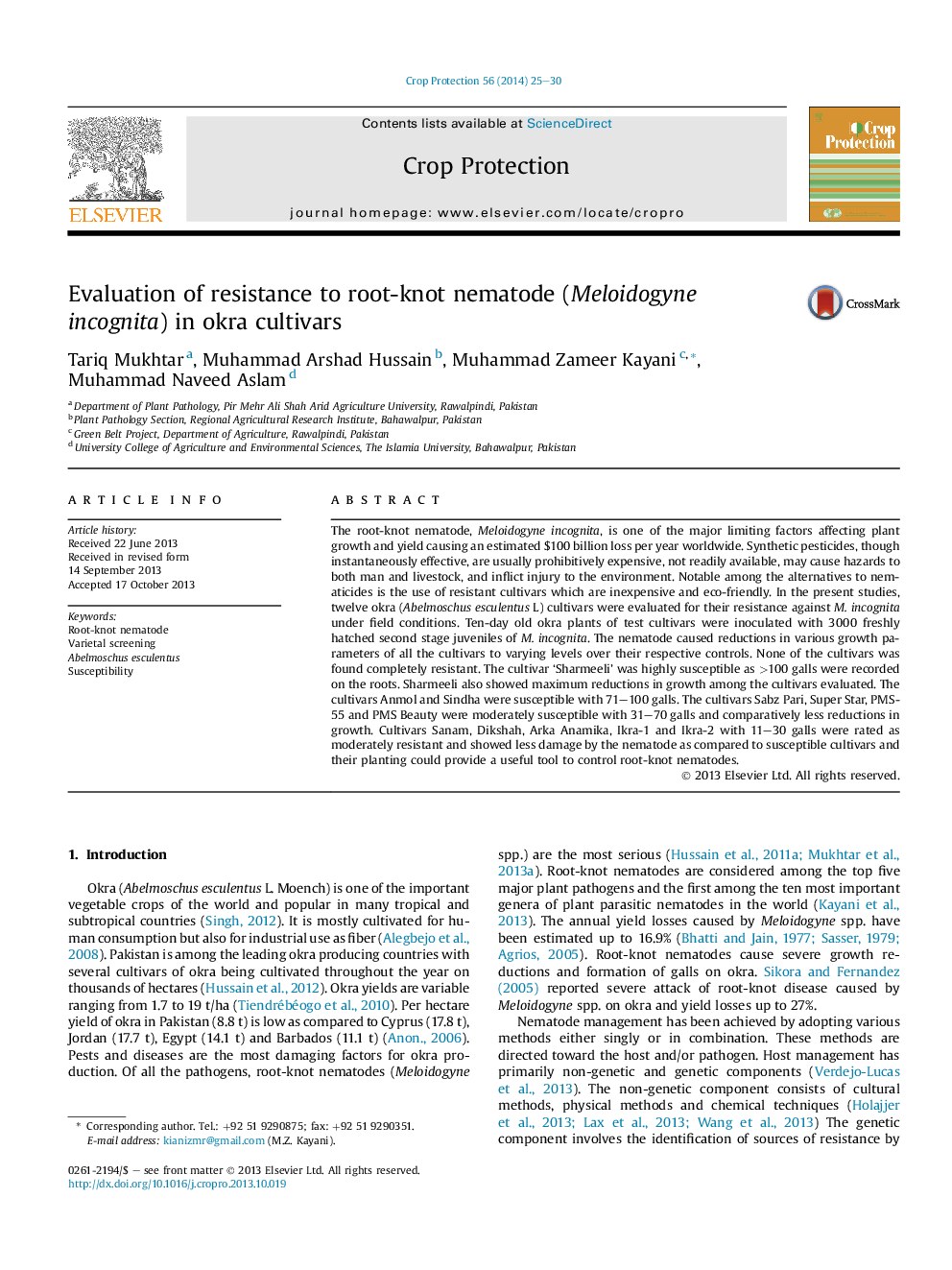| Article ID | Journal | Published Year | Pages | File Type |
|---|---|---|---|---|
| 6373760 | Crop Protection | 2014 | 6 Pages |
Abstract
The root-knot nematode, Meloidogyne incognita, is one of the major limiting factors affecting plant growth and yield causing an estimated $100 billion loss per year worldwide. Synthetic pesticides, though instantaneously effective, are usually prohibitively expensive, not readily available, may cause hazards to both man and livestock, and inflict injury to the environment. Notable among the alternatives to nematicides is the use of resistant cultivars which are inexpensive and eco-friendly. In the present studies, twelve okra (Abelmoschus esculentus L) cultivars were evaluated for their resistance against M. incognita under field conditions. Ten-day old okra plants of test cultivars were inoculated with 3000 freshly hatched second stage juveniles of M. incognita. The nematode caused reductions in various growth parameters of all the cultivars to varying levels over their respective controls. None of the cultivars was found completely resistant. The cultivar 'Sharmeeli' was highly susceptible as >100 galls were recorded on the roots. Sharmeeli also showed maximum reductions in growth among the cultivars evaluated. The cultivars Anmol and Sindha were susceptible with 71-100 galls. The cultivars Sabz Pari, Super Star, PMS-55 and PMS Beauty were moderately susceptible with 31-70 galls and comparatively less reductions in growth. Cultivars Sanam, Dikshah, Arka Anamika, Ikra-1 and Ikra-2 with 11-30 galls were rated as moderately resistant and showed less damage by the nematode as compared to susceptible cultivars and their planting could provide a useful tool to control root-knot nematodes.
Related Topics
Life Sciences
Agricultural and Biological Sciences
Agronomy and Crop Science
Authors
Tariq Mukhtar, Muhammad Arshad Hussain, Muhammad Zameer Kayani, Muhammad Naveed Aslam,
